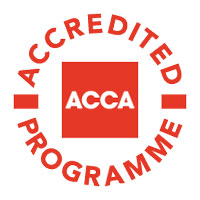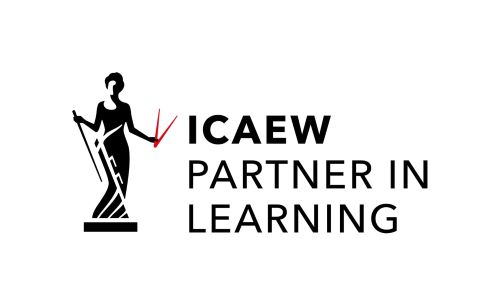Undergraduate Course
Accounting and Finance BA (Hons)
Prepare for a dynamic career in a finance profession. Develop numerical skills as well as an ability to analyse and problem solve.
/prod01/yorksjacuk/media/content-assets/safe-images/1600-x-1000/Classroom-teaching-12.jpg)
If you are thinking of a career as an accountant, business owner or in a professional practice, a knowledge of accounting and finance is essential. Gain this knowledge and valuable experience, engaging with businesses to excel in your future career.
Please note accreditations may be subject to change, and are dependent on fulfilling the awarding bodies criteria.
York campus
- UCAS code – N1N2 (N4N3 with placement year)
- Duration – 3 years full time, 4 years full time with placement
- Start date – September 2026, September 2027
- School – York Business School
Minimum entry requirements
104 UCAS Tariff points
3 GCSEs at grade 4/C (or equivalent) including English Language. Grade 5 in Maths.
Tuition fees
UK 2026 entry £9,790 per year full time
International 2026 entry £12,100 per year full time
Discover Accounting and Finance at York St John University
Accounting and Finance
Sarah Fitzgerald, Course Leader in Accounting and Finance, introduces us to the subject at York St John University.
WREL at York Business School
Work related experiential learning (WREL) is a key part of studying at York St John University and prepares you for success after graduation. Hear from our students about the opportunities it has led to for them and our staff about how it is embedded in our courses.
Course overview
This course will introduce you to the principles and practice of Accounting and Finance. You will gain a thorough understanding of accounting concepts, which is ideal if you want to become a professional accountant. Having accounting and finance knowledge is an advantage in any profession today, from being a stockbroker to an economist. So even if you do not want to become a professional accountant, you will find this degree invaluable.
You will take part in lectures, seminars, workshops, task focused activities, field trips and excursions as part of this course. You will also engage with industry practitioners. Each year we offer employer talk back events, this gives you the opportunity to hear from Accountants currently working in a variety of organisations and learn about their career paths and the opportunities for graduates in their organisations.
Take a look at distinct course features that set it apart:
- A focus on employability and getting you ready for the workplace.
- Tutors who are active researchers and will use their knowledge to help you develop yours.
- Dedicated 1 on 1 support from your personal tutor to help you reach your potential and seminar sizes of 20 to 25 students.
- Focus on the areas of your learning that matter to you, with options on module focus and support specific to you.
You will have the opportunity to take part in the off campus Sage course, you will learn about Sage accounting software and how this is used in practice. Sage is the market leader for integrated accounting, payroll, and payment systems, supporting the ambition of the world’s entrepreneurs.
As a Business School we are passionate about social responsibility and sustainability. These values and this commitment will be embedded throughout this course. We are a Principles of Responsible Management Education (PRME) signatory for the United Nations. Our mission is to develop your potential so that you can make a difference in society.
On completion of your studies you will have the opportunity to claim exemptions from the Association of Chartered Certified Accountants (ACCA), Institute of Chartered Accountants in England and Wales (ICAEW) and /or Chartered Institute of Management Accountants (CIMA).
We are recognised as an ICAEW Partner in Learning, working with ICAEW in the professional development of students. As a global professional body for chartered accountants, they promote inclusivity, diversity and fairness. They believe that chartered accountancy can be a force for positive change and continue to work with governments, regulators and business leaders globally as their method to serve the public interest.
Through the Accounting and Finance Course, you will have the opportunity to partake in the CIMA scheme, CIMA is the global professional management accounting body based in UK. They offer training and qualifications in management accountancy, focusing on accountants working in, or studying for a career in the industry.
Course structure
Year 1
Our academic year is split into 2 semesters. This course can only be studied full time.
In your first year, you will study:
- 3 compulsory modules in semester 1
- 3 compulsory modules in semester 2
You can find out which modules are available in each semester on the Course Specifications.
Modules
Credits: 20
Compulsory module
This module introduces you to the core principles of microeconomics and macroeconomics, focusing on understanding how these concepts can be applied in real world scenarios. You will build practical skills, learning to apply theory to address practical challenges faced by businesses. By studying this module, you will develop an understanding of how individual decisions and developments in economic environment may influence business strategies.
Credits: 20
Compulsory module
This module provides an introduction to ideas that are essential for your understanding of both financial and management accounting. We go beyond theory, equipping you with authentic workplace skills and a deeper understanding of your own strengths and abilities. The topics we will explore include:
- Differences between financial accounting and management accounting
- Preparing simple financial statements (such as statements of profit or loss, statements of financial position, and cash flow statement)
- Elements of financial statements, including assets, capital, liabilities, revenue and expenses
- Planning and budgeting
Credits: 20
Compulsory module
This module will introduce you to some of the contexts in which accounting operates. We will contextualise the accountant’s role in organisations, working and communicating with other organisational functions to provide useful information. By the end of the module you will be able to:
- Explain the role of accountants in various organisations
- Analyse organisational information within the context of the operating environment
- Recognise and assess your current skills to plan for your own professional development
Credits: 20
Compulsory module
This module focuses on recording, processing, and reporting business transactions and events. You will also learn to identify and correct errors, and consider the production of financial statements for incorporated entities. We will cover:
The regulatory framework
- Double-entry book-keeping principles including the maintenance of accounting records and sources of accounting information
- Understanding and applying accruals, prepayments, valuing closing stock, depreciation, bad debts, and provision for bad debts
- Preparing and correcting a trial balance
- Preparing Statements of financial position and statements of profit or loss
- Basic ratio analysis of financial statements
Credits: 20
Compulsory module
Modern businesses generate data at unprecedented scales, and data has become the lifeblood of businesses. This module introduces you to the essential characteristics of data, and the skills you need to use them effectively for business decision-making. We will teach you about the mathematical and statistical methods that are frequently applied in business, finance and economics.The module emphasises the practical application of mathematical and statistical tools to solve real business problems and generate actionable insights.This will include learning to use statistical software to perform data analysis.
Credits: 20
Compulsory module
On this module you will learn about cost concepts and methods of basic cost accumulation in a variety of business settings. We will explore the principles of financial control, including standard costing and budgeting. You will also learn to use basic analytical techniques involved in the provision of accounting information for short and long-term decision making, and address some of the ethical and social considerations which need to be taken into account.
Year 2
In your second year you will study:
- 3 compulsory modules in semester 1
- 3 compulsory modules and 1 optional module in semester 2
You can find out which modules are available in each semester on the Course Specifications.
Modules
Credits: 20
Compulsory module
This module will further develop your managerial accounting techniques, in particular those relating to planning, control and decision making at an operational and tactical level. You will also investigate the impact of financial control and decision making on human behaviour. This will help you to develop your understanding of management accounting techniques, while also considering the financial, behavioural and environmental consequences of these actions.
Credits: 20
Compulsory module
A knowledge of the principles of business law is essential for anyone who aspires to manage and direct a business. This module will introduce you to the basic framework of English law, developing your knowledge and skills in the areas of contract law, agency law and Tort (a wrongful act or an infringement of a right leading to legal liability). You will also learn about laws relating to the formation and running of partnerships and companies.
Credits: 20
Compulsory module
This module will deepen your understanding of investment decisions by situating them within a broader business context. We will focus on the sources and costs of both internal and external finance. On this module you will:
- Learn to analyse capital budgeting decisions, particularly in the context of risk
- Compare and contrast various theories of capital structure
- Understand how different capital structures can impact a company's cost of capital.
- Critically evaluate theories of stakeholder value, learning these theories influence business strategies and decisions
Credits: 10
Compulsory module
On this module you will develop your understanding of auditing procedures, as well as investigating contemporary issues in auditing. Whether you aspire to a career as a professional accountant in professional practice, industry or commerce, a sound understanding of the principles underlying auditing is essential. This knowledge will enhance your wider awareness of issues such as ethical conduct, quality assurance and practice development.
Credits: 10
Compulsory module
On this module you will gain an understanding of taxation policies and principles, together with a detailed knowledge of income taxation. You will investigate the fiscal policies and principles of income taxation, and will learn how to understand and evaluate the mechanisms for calculating personal tax liabilities. You will also develop skills in tax planning and computation, and appreciate the importance of accuracy and integrity in a professional environment.
Credits: 20
Compulsory module
This module will further develop your understanding of the principles of financial accounting, referencing the key International Financial Reporting Standards (IFRS) Accounting Standards. You will review the conceptual and regulatory frameworks for financial reporting, and explore how these inform the standard setting process. We will focus on the reporting of financial information for single companies, in accordance with generally accepted accounting principles and relevant IFRS Accounting Standards. You will also learn abut the analysis and interpretation of financial information provided by companies.
Credits: 20
Compulsory module
In today’s data-driven business landscape, the ability to analyse, interpret, and communicate insights effectively is a critical skill. Organisations rely on Business Intelligence (BI) tools and data visualisation techniques to transform raw data into meaningful narratives that drive decision-making. This module will give you the practical skills d to harness the power of BI, using tools such as Power BI to create dynamic, interactive dashboards and reports. By integrating visualisation principles with data storytelling techniques, you will learn how to present complex data in a clear and compelling way.
Credits: 20
Compulsory module
Understanding research and conducting it is a life skill, as well as being valuable to the functioning of organisations. This module will give you the foundational skills to evaluate, design and conduct research. You will learn to:
- Formulate and scrutinise research questions
- Design and propose research methodology
- Collect qualitative and quantitative data
- Analyse data, reach conclusions using it, and report it
These skills will be transferable in all fields of business, including finance, marketing, economics, tourism and events. You will also learn IT skills for survey design and statistical data analysis. For this module’s assessments you will learn to create video presentations, to work conduct and report research collaboratively, and to propose an original piece of research.
Year 3
In your third year you will study:
- A Research Investigation module, across semesters 1 and 2
- 2 compulsory modules and 1 optional module in semester 1
- 2 compulsory modules and 1 optional module in semester 2
You can find out which modules are available in each semester on the Course Specifications.
Optional modules will run if they receive enough interest. It is not guaranteed that all modules will run every year.
Modules
Credits: 20
Compulsory module
This module builds upon your knowledge of financial management gained from the Corporate Finance module in Year 2. You will learn to critically examine the theory of business finance and its contribution to decision making. The valuation of a business or share is a crucial skill in financial management and we will introduce you to different techniques in the context of financial management. This includes the role of dividends and share buybacks.
Credits: 20
Compulsory module
On this module you will examine advanced issues in management accounting. You will learn about the accountant’s role in providing information for strategic planning and decision making, control and performance management. You will consider recent developments on cost management and the integration of cost accounting with modern manufacturing techniques. You will also investigate the connection between management accounting and strategic management.
Credits: 20
Compulsory module
On this module you will continue your exploration of accounting standards. You will learn how to produce consolidated financial statements for a group of companies, including an associate. You will also critically evaluate current developments and debates related to financial reporting.
Credits: 20
Compulsory module
As companies become increasingly complex, they become more difficult to manage, direct and hold to account. Meanwhile the environment they operate in is also becoming more complex, due to pressures of sustainability and ethical behaviour. On this module you will consider how modern companies are operated and directed in this fast changing world, within the framework of the FRC UK Corporate Governance Code, taking in to account their responsibilities for Ethical behaviour and sustainability. York Business School are committed to integrating Principles for Responsible Management Education (PRME). This module is aligned with the Sustainable Development Goals.
Credits: 40
Optional module
On this module you will develop a substantial piece of specialist work, with the support of a designated research investigation tutor. This could be in the form of either:
- A traditional Dissertation
- A Business Creation Feasibility Project
You will develop research objectives, formulate appropriate methodologies, and apply problem solving and analytical skills in a business context of your choice. You will also need to collect, analyse, interpret, and evaluate the data generated by your research. At the end of the module, you will have the opportunity to showcase your research at the York Business School Undergraduate Research Symposium.
Credits: 20
Optional module
This module will further develop knowledge and understanding of auditing. You will learn about main technical language and practices of auditing, as well as learning to to review and test transactions and other financial events to arrive at an audit opinion. You will explore:
- The theory underlying the audit process including independence, competence, evidence, materiality, risk, and scepticism and audit quality
- Legal and regulatory frameworks in auditing
- Audit planning and audit evidence
- The audit review, finalisation and the audit report
Credits: 20
Optional module
On this module you will learn about taxation policies and principles, including a detailed investigation of corporate tax, vat, capital gains tax and inheritance tax computations. Whether you aspire to a career as a professional accountant in professional practice, in industry, or to a more general role in management, a sound understanding of the principles underlying personal and business taxation is essential.
Credits: 20
Optional module
Globalisation has been a defining feature of how the planet has been re-shaped in economic, technological, social and cultural terms throughout the twentieth century, but it is increasingly being questioned. Issues such as uneven development, inequality, climate change, national-populism, and insecure employment have all challenged dominant thought on globalisation. On this module you will explore how globalisation is being revisited and rethought, engaging with arguments related to social justice in a contested global environment. We consider a broad range of perspectives, not just the traditional voices from the Euro-West that have typically been used to interpret the global environment. The module is informed by the Principles for Responsible Management Education (PRiME).
Credits: 20
Optional module
The requirement for effective strategic management is increasing due to the highly complex environments in which most private and public sector organisations currently exist. The study of organisational strategy includes theory and practice from a broad range of business sectors. You will investigate concepts introduced in earlier modules and you will develop your critical understanding of these topics and their relationships.
Teaching and assessment
Teaching and learning
All of your modules will be delivered using a variety of different teaching sessions. This includes:
- Lectures
- Seminars
- Guest speakers
- Workshops
- Events
Each module has 3.5 hours of contact time a week. This consists of a 1.5 hour lecture and a 2 hour seminar. 1 to 1 time can be booked through our tutorial booker system.
You will also have regular individual tutorial sessions with your academic tutors to support your learning. You will also have opportunities to gain work experience through modules which will take your learning beyond the classroom and into the city.
Assessment
We use a wide variety of assessment types, which help you to develop skills relevant to the workplace. This includes:
- Written assignments
- Individual and group presentations
- Exams
- Practical activities
You will receive feedback on your work throughout each module. This will help you to improve your work for your graded assessments. We will advise you on developing your skills, useful areas for research and how to extend your business knowledge further.
Professional Skills
We encourage you to extend your learning through Continuing Professional Development as you study. Our Success Lab provides extra events, short courses and opportunities to help you make the most of your degree. The academic and professional skills you develop through this will help to boost your employability when you graduate.
Career outcomes
Your future with a degree in Accounting and Finance
This course will prepare you for a career in a finance profession. You will develop numerical skills as well as an ability to analyse and problem solve. The knowledge you gain of global business organisations and issues will open up a range of career options.
A degree in Accounting and Finance could be the first step in your career as a:
- Chartered accountant
- External auditor
- Stockbroker
- Data analyst
- Economist
- Mortgage adviser
Discover more career options on Prospects careers advice pages.
You could also progress onto a postgraduate degree and take your learning even further.
Alumni stories
Visit our YSJ Snapshots blog to see what our past students from across the University have done with their York St John degrees.
Whatever your ambitions, we can help you get there.
Our careers service, LaunchPad provides career support tailored to your ambitions. Through this service you can access:
- Employer events
- LinkedIn, CV and cover letter sessions
- Workshops on application writing and interview skills
- Work experience and volunteering opportunities
- Personalised career advice
This support doesn't end when you graduate. You can access our expert career advice for the rest of your life. We will help you gain experience and confidence to succeed.
Entry requirements
Qualifications
Minimum entry requirements
104 UCAS Tariff points
3 GCSEs at grade 4/C (or equivalent) including English Language. Grade 5 in Maths.
Calculate your UCAS Tariff points
International students
If you are an international student you will need to show that your qualifications match our entry requirements.
Information about international qualifications and entry requirements can be found on our International pages.
If English is not your first language you will need to show that you have English Language competence at IELTS level 6.0 (with no skill below 5.5) or equivalent.
International entry requirements
This course is available with foundation year
If you do not yet meet the minimum requirements for entry straight onto this degree course, or feel you are not quite ready for the transition to Higher Education, this is a great option for you. Passing a foundation year guarantees you a place on this degree course the following academic year.
Mature Learners Entry Scheme
If you have been out of education for 3 years or more and have a grade C GCSE in English Language and Maths or equivalent, you are eligible for our entry scheme for mature learners. It's a scheme that recognises non-traditional entry qualifications and experience for entry onto this course. Information on how to apply can be found on our dedicated page.
Advanced entry
Considering transferring to join us in year 2 or 3 of our Business Courses? Please see our Advanced Entry page for information on the courses available and how to apply.
Terms and conditions
Our terms and conditions, policies and procedures contain important information about studying at York St John University. You can read them on our Admissions page.
Fees and funding
To study for a degree with us, you will need to pay tuition fees for your course. How much you pay depends on whether you live inside the UK, or internationally (outside the UK).
Tuition fees are reviewed annually and may be increased in line with inflation, prior to the start of each academic year, and subject to the fee cap set by the UK government. Such increases to fees will be at the Retail Price Index (RPI) forecast rate, as advised by the Office for Budget Responsibility and the Office for Students. The only exception to this would be where government legislation deems otherwise.
If a rise in the tuition fee becomes necessary, we will endeavour to inform you as soon as possible and we will explain the reason(s) for the increase. Any tuition fee increase will only be applied from the start of the next academic year and will not be applied 'in year'.
UK 2026 entry
Tuition fees for 2026 will be £9,790 per year for full time study, subject to government approval.
This price applies to all UK, Jersey, Guernsey and Isle of Man students.
You can find out more about funding your degree by visiting our funding opportunities page.
Placement year funding
If you choose to take a placement year, and your course offers it, you can apply for the Tuition Fee and Maintenance Loan for your placement year. How much you are awarded is based on the type of placement being undertaken and whether it is a paid or unpaid placement. The tuition fee for your placement year will be reduced.
Tuition fees
UK 2026 entry £9,790 per year full time
International 2026 entry £12,100 per year full time
International 2026 entry
The tuition fee for 2026 entry to this course is £12,100 per year for full time study.
This price applies to all students living outside the UK.
Due to immigration laws, if you are an international student on a Student Visa, you must study full time. For more information about visa requirements and short-term study visas, please visit the International Visa pages.
Find out more about funding your degree.
Additional costs and financial support
There may also be some additional costs to take into account throughout your studies, including the cost of accommodation.
Course-related costs
While studying for your degree, there may be additional costs related to your course. This may include a DBS check, purchasing personal equipment and stationery, books and optional field trips.
Study Abroad
For more information on tuition fee reductions and additional costs for studying abroad, please visit our study abroad page.
Accommodation and living costs
For detailed information on accommodation and living costs, visit our Accommodation pages.
Financial help and support
Our Funding Advice team are here to help you with your finances throughout your degree. They offer a personal service that can help you with funding your studies and budgeting for living expenses.
For advice on everything from applying for scholarships to finding additional financial support email fundingadvice@yorksj.ac.uk.
Course highlights
Career Focused Opportunity
Through relationships with The Chartered Institute of Management Accountants (CIMA), Institute of Chartered Accountants in England and Wales (ICAEW), Association of Chartered Certified Accountants (ACCA) and the off campus SAGE course, you can develop career specific skills and qualifications, giving you the ability to make the most of your time during your degree.
Extra Support
Within the business school you will have access to an additional 30-minutes of support built into our seminar time for students. This is offered as extra support that our students can have for an informal discussion surrounding assessment, university life or just a friendly face to talk to.
Principles for Responsible Management Education (PRME)
York Business School is one of only a few Business Schools to be a signatory of the United National Principles of Responsible Management Education (PRME). PRME have identified 17 Sustainable Development Goals (SDGs) that address some of our most critical economic, social, environmental and governance challenges. All of our courses are aligned to these goals, and we also contribute to the goals through our research.
.jpg)
Charlotte Accounting and Finance
This course has really helped to prepare me for going into the ‘working world’. Most of my modules related to the reality of life in the business world. My lecturers had all previously worked in the industry which meant that we had some great links to industry. We would have guest talks and links for work experience placements. For example, my Tax lecturer was able to set up 3 days work experience for me and 2 others at BHP (a local chartered accountants office). It’s made the idea of getting a graduate job a little less daunting!

Hannah Accounting and Finance
The lecturers go above and beyond to ensure you have the best chance at fulfilling your potential. Throughout the degree, there are many opportunities to volunteer, building on your CV, something that looks great to employers. There are also additional services available with the careers department, from CV checks to mock assessment centres. Accounting and Finance gives you the opportunity to explore career paths you never knew existed.
Ella Accounting and Finance
I learnt basically everything there is to know about accounting: how to balance my time; how to prioritise things such as exam preparation; a lot about the world of business. We did a lot of case study sessions which really helped me understand things in perspective. My placement year massively helped me prepare for the working world and understand what to expect when starting my career properly.



/prod01/yorksjacuk/media/content-assets/safe-images/1600-x-1200/Accounting-and-Finance-Carousel-2.jpg)
/prod01/yorksjacuk/media/content-assets/safe-images/1600-x-1000/Marketing-group.jpg)
/prod01/yorksjacuk/media/content-assets/safe-images/1600-x-1200/PRME-carouse.jpg)

/prod01/yorksjacuk/media/content-assets/safe-images/500-x-500/YORK-SHOTS---WEB-23-(1).jpg)
/prod01/yorksjacuk/media/content-assets/safe-images/500-x-500/decision-day.jpg)
/prod01/yorksjacuk/media/content-assets/safe-images/500-x-500/why-choose-YSJ-500x500.jpg)
